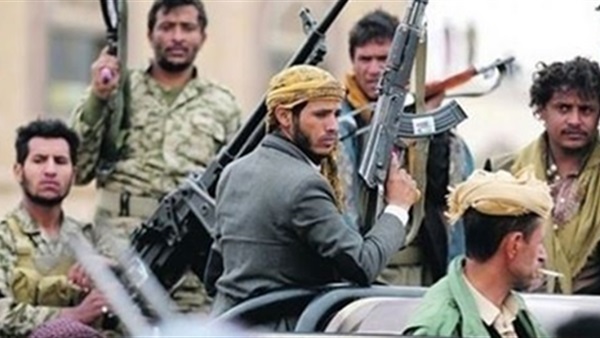UN extends sanctions on Houthi terrorist group: Impact on Yemen's conflict and Iran's weapon smuggling exposed

In recent days, the UN Security Council has extended its
sanctions on the Houthi group, with the aim of curbing the violations committed
by the Iran-backed group against the Yemeni people.
The move appears to be bearing fruit, as opportunities for
extending the ceasefire and imposing sanctions were largely absent due to the
Houthi group's stubbornness and refusal to agree to the Security Council's
conditions, including the payment of salaries and pensions to employees
according to 2014 records, as well as the expansion of the destinations of
Sana'a International Airport and the lifting of all restrictions on imports to
the Hodeidah port controlled by the group.
However, last week, the Houthi group announced that ships
had entered the Hodeidah port without being detained or delayed.
The relationship between the Houthi group and the
international community and the United Nations, in particular, is unclear. On
the surface, there are international sanctions, but in reality, the coup group
was using those negotiations to raise the ceiling of its demands in order to be
in a position of greater power, especially since there is no obligation to any
agreements.
Therefore, it is likely that the ceasefire will continue in
an unbinding and open manner, as Yemeni journalist Mohamed Al-Jaradi confirmed.
He said that there are no real sanctions imposed by the UN Security Council on
this group, and if there were, Resolution 2216 concerning Yemen would have been
implemented. However, there is a great deal of leniency on the part of this
council, and the sanctions it imposes are useless.
In a statement to "The Reference", the Yemeni
journalist explained that the United Nations created the Houthi group and made
it a project despite everyone's objections. The UN Security Council's decision
to extend sanctions on the Houthi group raises questions about the
effectiveness of such measures and whether they can achieve the desired
results.
It also highlights the complex and ambiguous relationship
between the Houthi group and the international community, which makes it
difficult to predict the outcome of any negotiations or agreements. Despite the
extension of sanctions, it remains to be seen whether the Houthi group will
continue to violate human rights and commit atrocities against the Yemeni
people, or whether they will finally comply with the Security Council's
conditions and work towards peace and stability in the region.
The recent UN decision to extend the sanctions imposed on
the Houthi group in 2022 maintains the group's classification as a terrorist
organization, condemning the group's cross-border terrorist attacks against civilians
and civil infrastructure in Saudi Arabia and the United Arab Emirates.
The decision also calls for immediate measures to stop such
attacks and includes the Houthis on the list of Yemen-related sanctions under
the UN arms embargo.
Yemeni journalist Muaad Rajeh argues that the UN decision
itself will not affect the Houthi militia or change the current conflict
landscape.
However, its importance lies in its timing as the group is
engaged in indirect negotiations with the international community through Oman,
attempting to impose its conditions and blackmail everyone to achieve economic
and financial gains without abandoning its war project.
Rajeh further emphasizes that the decision is the latest
international consensus after the Houthis were listed as a terrorist group in
the sanctions regime by Security Council Resolution 2624 on Yemen in 2022.
The decision was made
following changes in legitimacy, whereby the former President Hadi transferred
his powers to an eight-member Presidential Council led by Dr. Rashad al-Alimi.
In addition to highlighting Iran's weapons smuggling
operations, Rajeh believes that the decision has negative implications for the
Republican faction or the forces opposing the Houthis. It confirms the
continuation of sanctions imposed on former President Ali Abdullah Saleh, who
was killed by the Houthis in December 2017, as well as his son,
Brigadier-General Ahmed Ali Saleh, who joined forces with the UAE-backed
Southern Transitional Council (STC) in 2017.
Overall, the decision to extend the sanctions imposed on the
Houthi group is significant in its timing, as it coincides with their ongoing
negotiations with the international community, and it emphasizes the continued
need to curb the group's terrorist activities.







